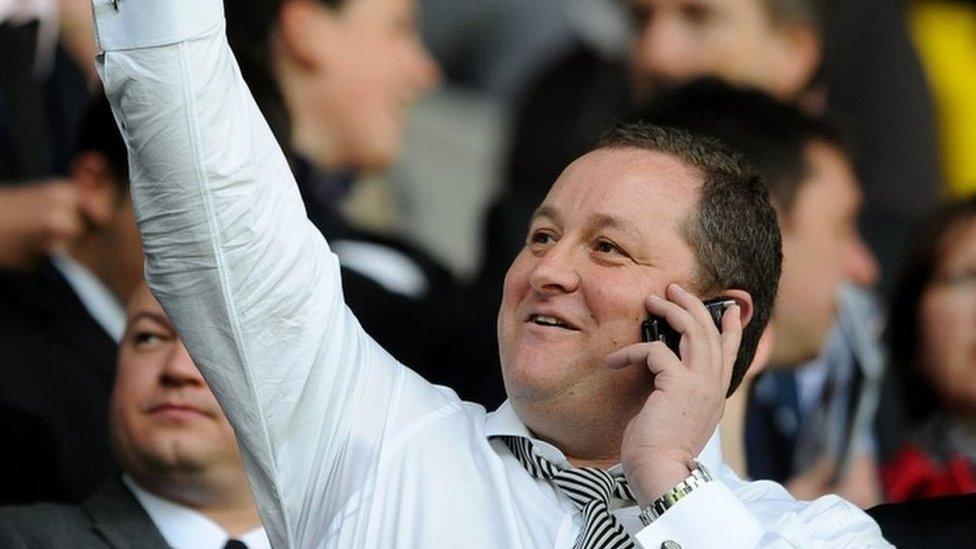Sports Direct: Former employees speak out
- Published
Sports Direct staff react to promises to improve their working conditions
A report , externalby British MPs into the retailer Sports Direct has likened its employment practices to those of a "Victorian workhouse".
The report, published by the Business, Innovation and Skills Committee stated that those employed by the retailer - one of the biggest in Europe - were "not treated as humans".
A spokesman for Sports Direct said: "We will study the contents of the Committee's report very carefully. It is our policy to treat all our people with dignity and respect.
"We are pleased to see that the Committee has recognised Mike Ashley's commitment to engage in addressing any shortcomings in the working practices at Sports Direct."
Former workers at the firm have spoken to the BBC about their experiences.
Katrina Kelly worked at Sports Direct for six years

Workers at the Sports Direct store in Aylesbury were allegedly docked 15-minutes worth of pay if they were one minute late for work
"It was a horrible place to work," she insisted. "There were several occasions that I believe we were treated extremely inappropriately by the powers-that-be.
"Our shop would close at 8pm weekdays," she said. "We were only paid until 8pm, even if we were often still mopping and cleaning at 9pm."
Katrina remembers one particularly bad stock-take shift when she was 17 years old.
"I started work at 8am, and worked through until 4am when I was only allowed an hour's break for the whole shift."
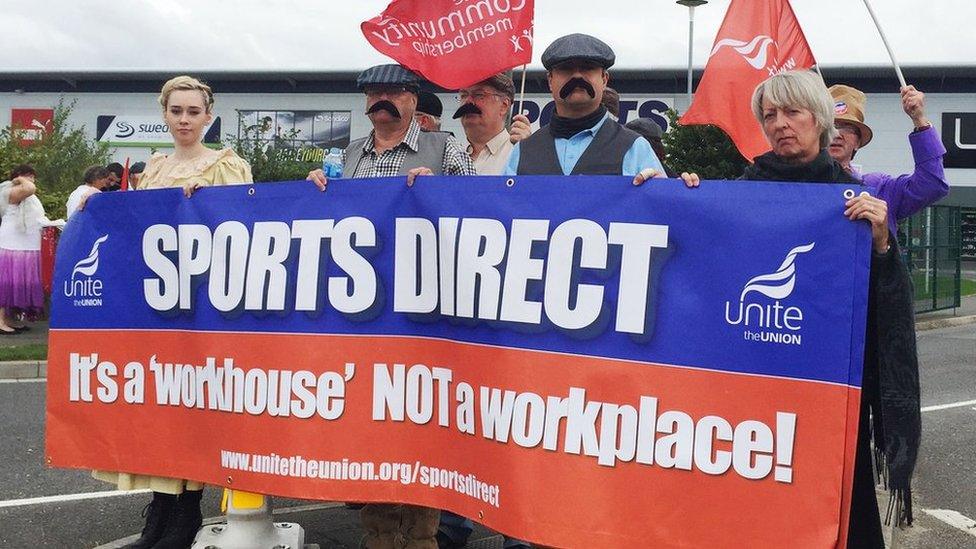
Unite union members outside Sports Direct's Annual General Meeting at their headquarters in Shirebrook, 9 September 2015
Fingerprints were scanned
After Katrina had been with the company for three years, she said they set up a fingerprint-scanning system for people to sign into and out of work.
"The fingerprint scan matched with your staff ID number. They then introduced a rule that if you were one minute late you were deducted 15 minutes of pay.
"We also had to buy our uniforms out of our own wages. It would be deducted from our payslips."
The inconsistency of shifts was also a big problem for her.
"Sometimes on my zero-hours contract, I would end up working for 10 days in a row, for 10 hours a day. On other weeks I would get given only one three-hour shift the whole week. There was no routine."
Adrian Walker had a positive experience with the firm
Adrian Walker worked for the company between 1996 and 1998.
"It was a lovely place to work." he says. "I worked in stock control when the head office and warehouse were in Dunstable."
Adrian met Mike Ashley once or twice a week, and insists that he was treated well both by other staff and by Mr Ashley.
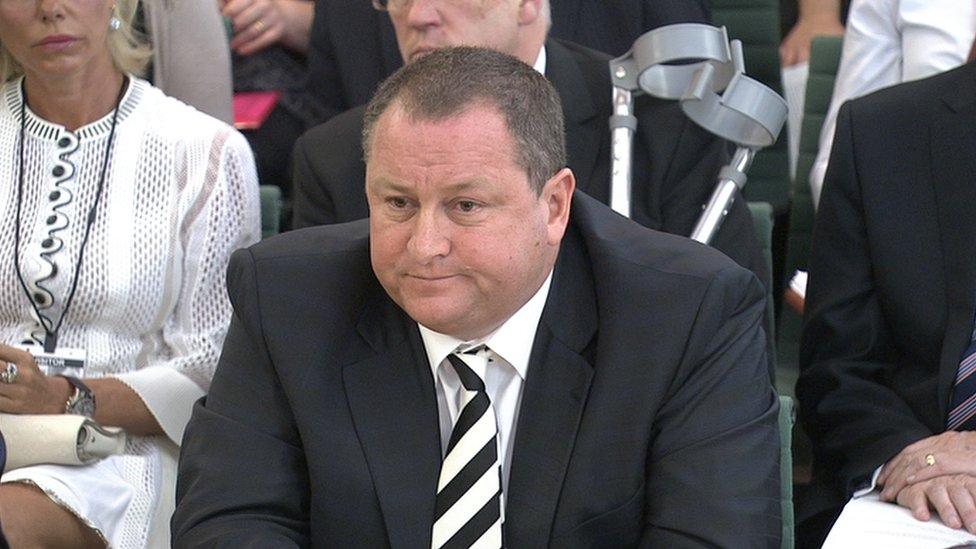
Mike Ashley at a parliamentary committee
"He was always very nice when he came in. He knew most people by name, although it was obviously a smaller company then. He often gave me cash to go and get McDonalds for everyone.
"Mr Ashley very rarely spoke to store employees but I never heard any bad stories like we hear now."
Sophie worked for the company three years ago
Sophie, 23, from Essex, began working at the Sports Direct store in Chelmsford around three years ago.
"When I went for my interview, I explained that I suffered from chronic fatigue syndrome. The interviewer said I would be able to have a stool to perch on at the till, if I needed to."
She said that this promise was not fulfilled when she began work.
Bathroom breaks questioned
Sophie also says the staff were only expected to use the bathroom at certain intervals.
"If we went to the toilet more than once every four hours we were called into the manager's office and questioned," she said. "I lasted six days before I quit."
Kevin Newton was a security guard at Sports Direct
Kevin Newton worked for the firm in Mansfield for three years. He says he had to search staff when they left work.
"The search procedure was particularly degrading for the women who worked there," he said.
"They often had to remove some of their clothing before they were allowed to leave, even down to their underwear sometimes, at the request of their managers."
By Daniel Avis, UGC and Social News Team
- Published22 July 2016
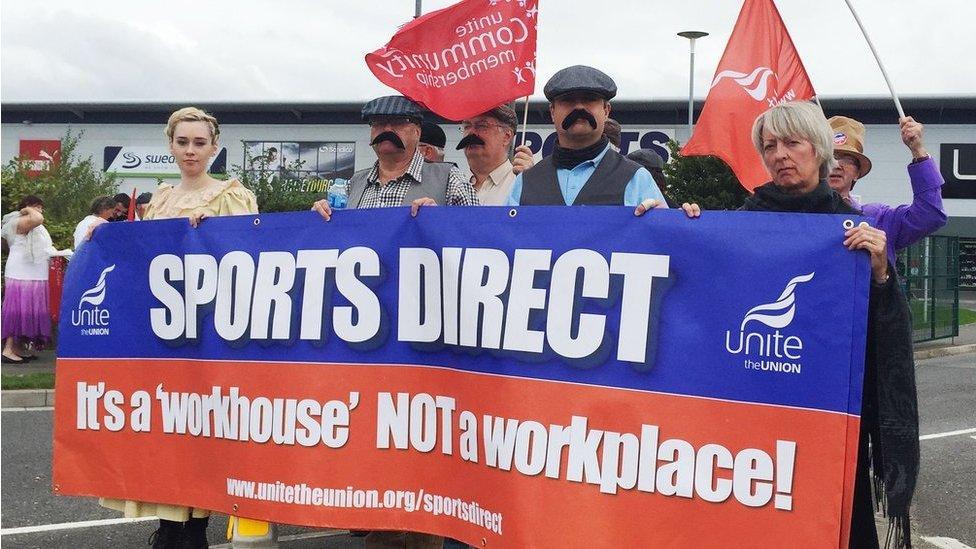
- Published7 June 2016

- Published7 June 2016
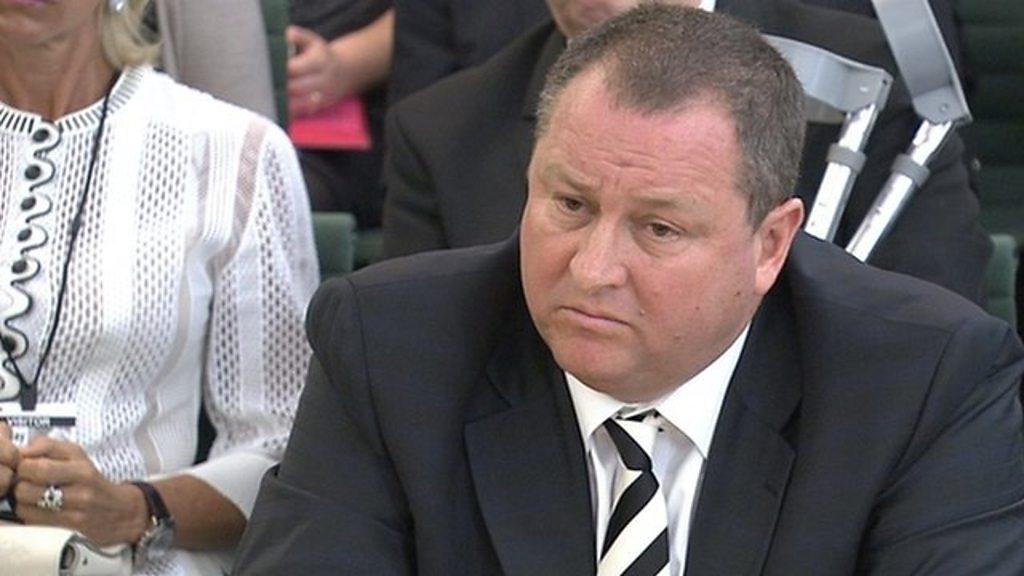
- Published21 March 2016
